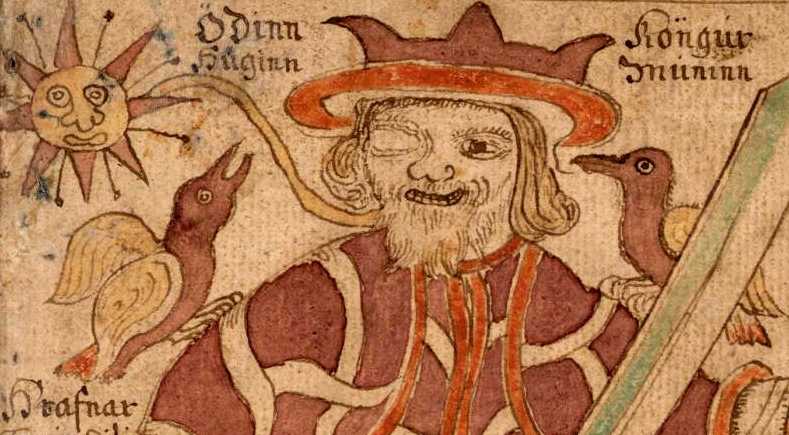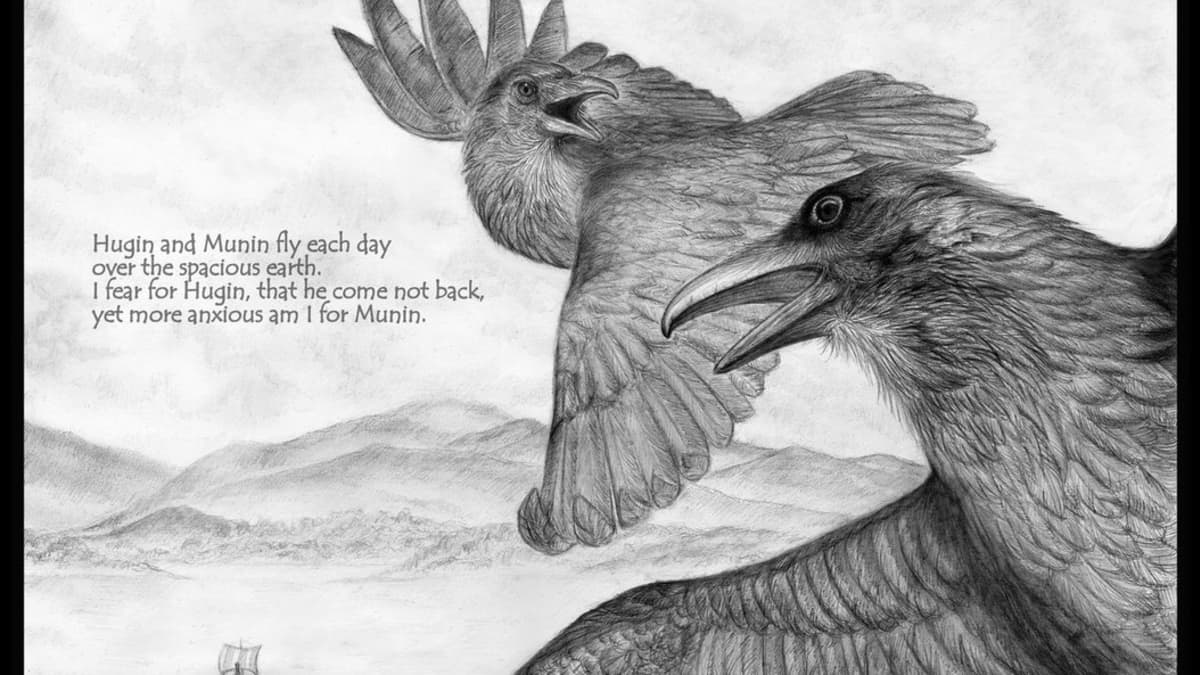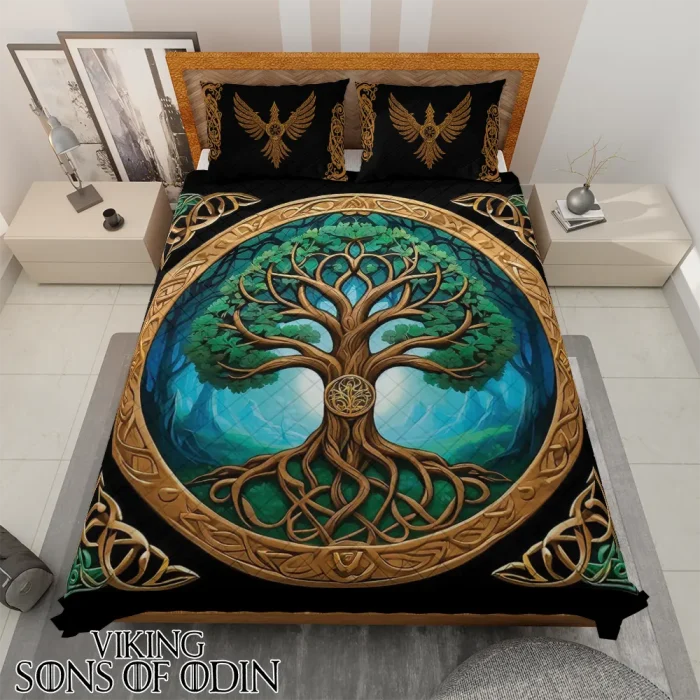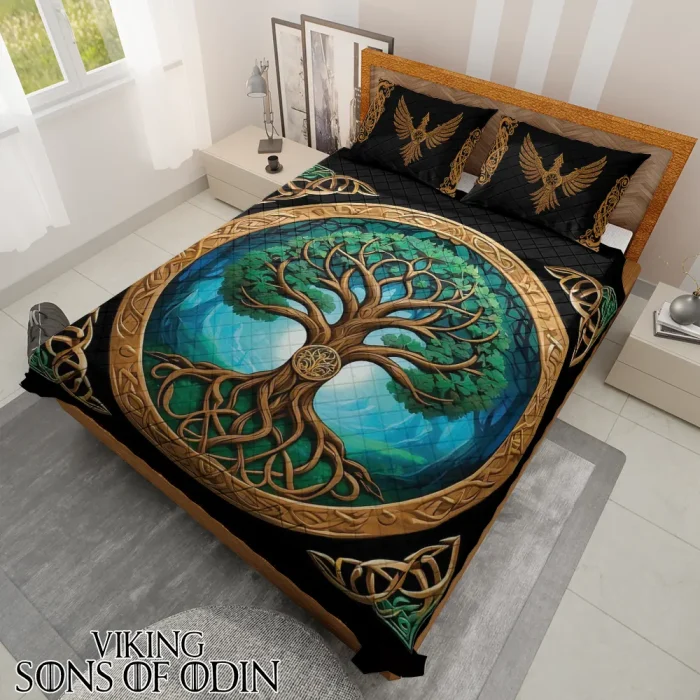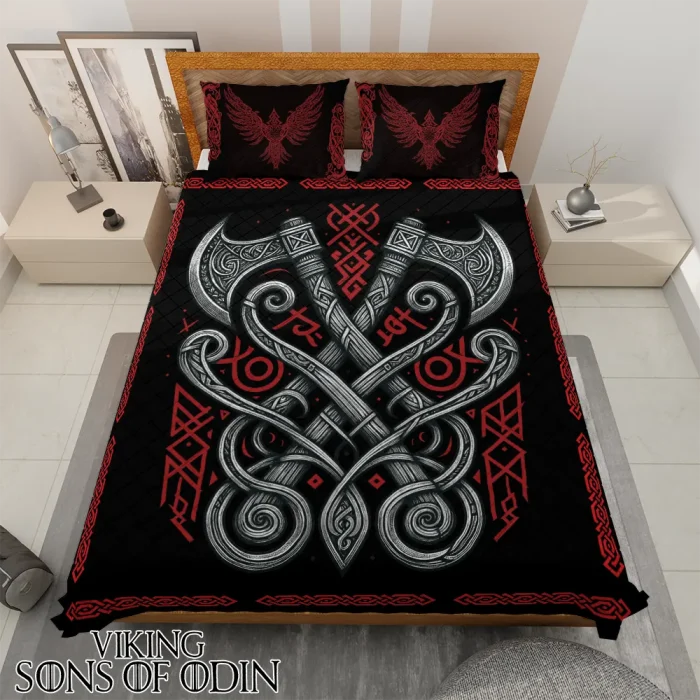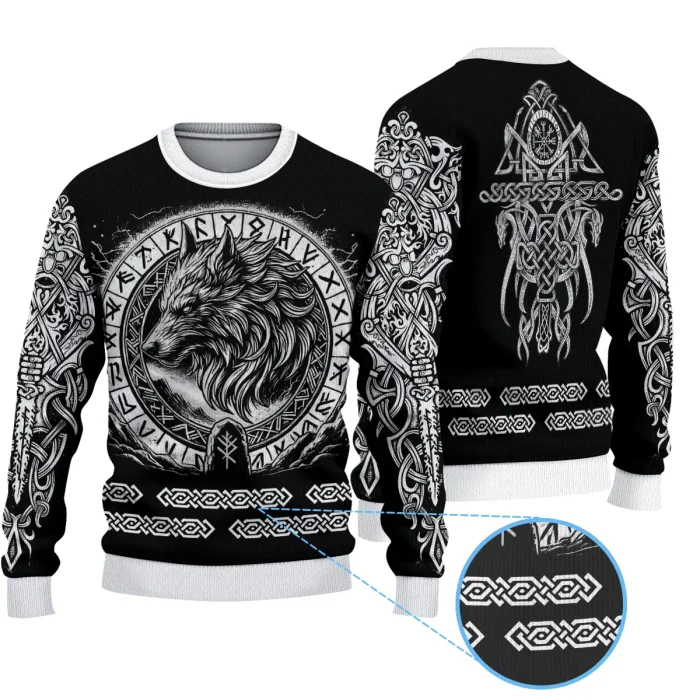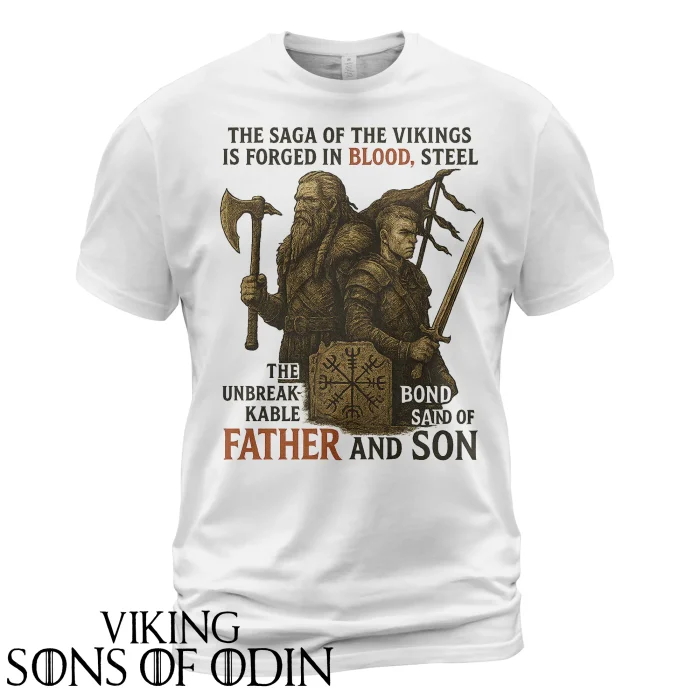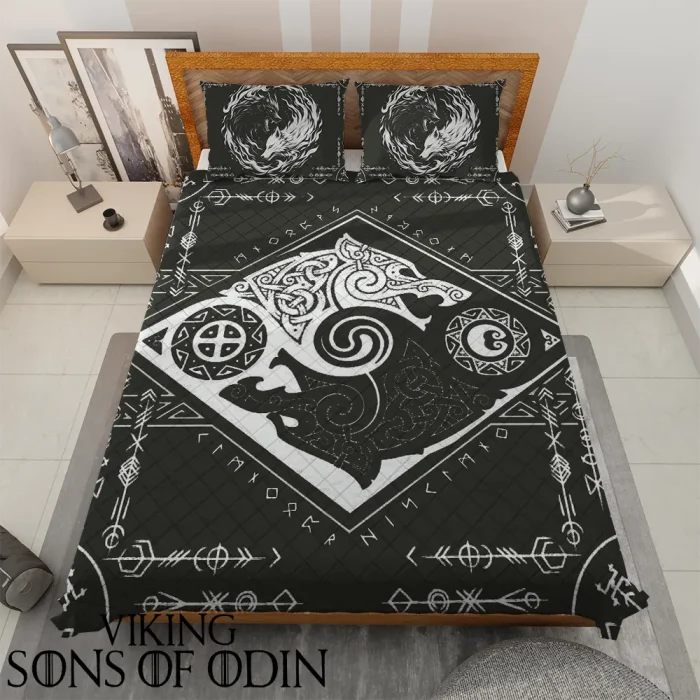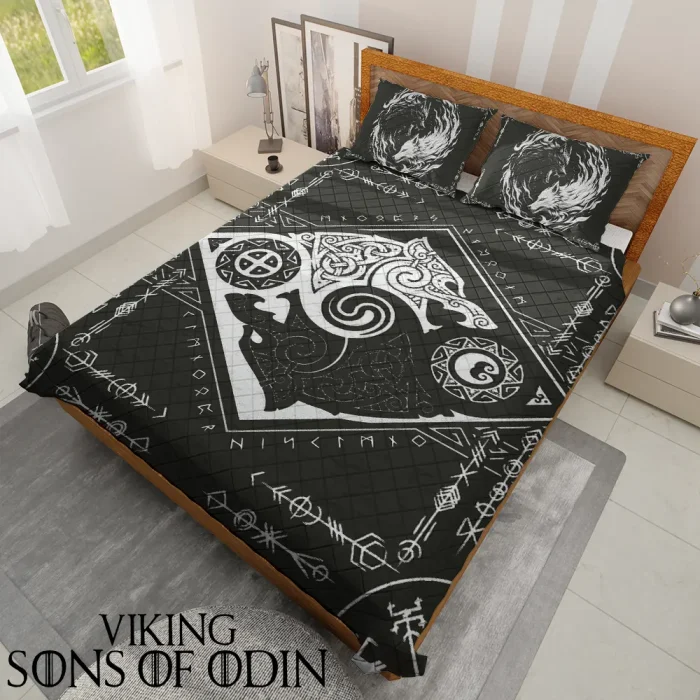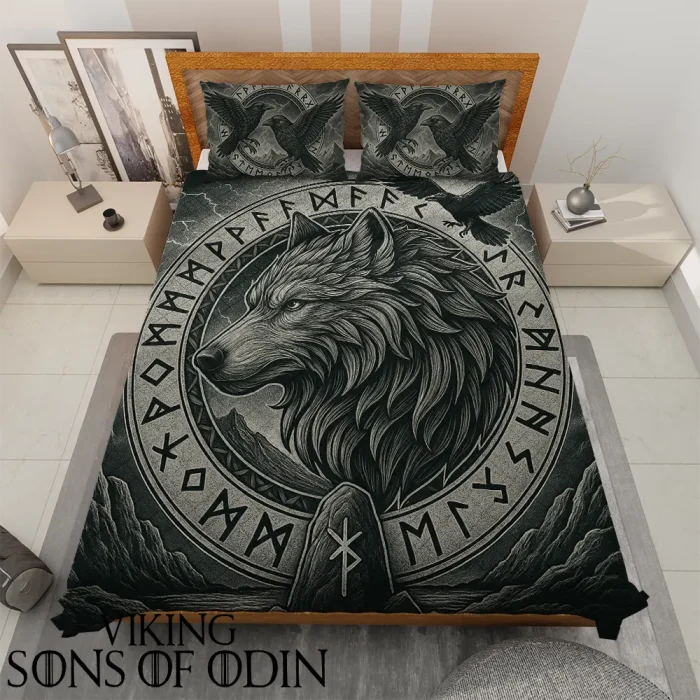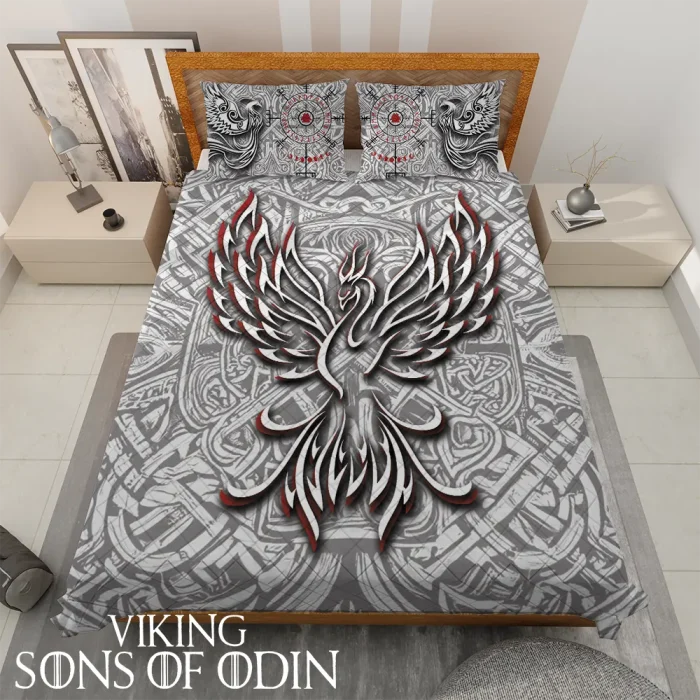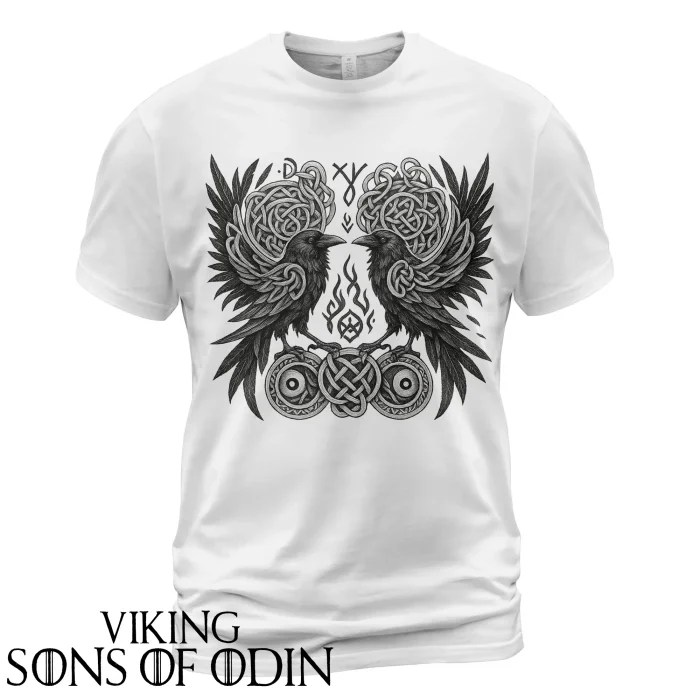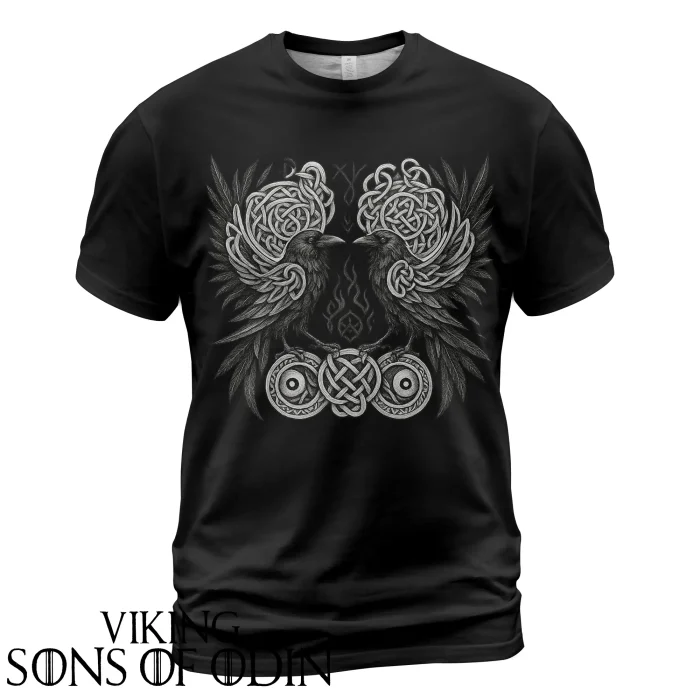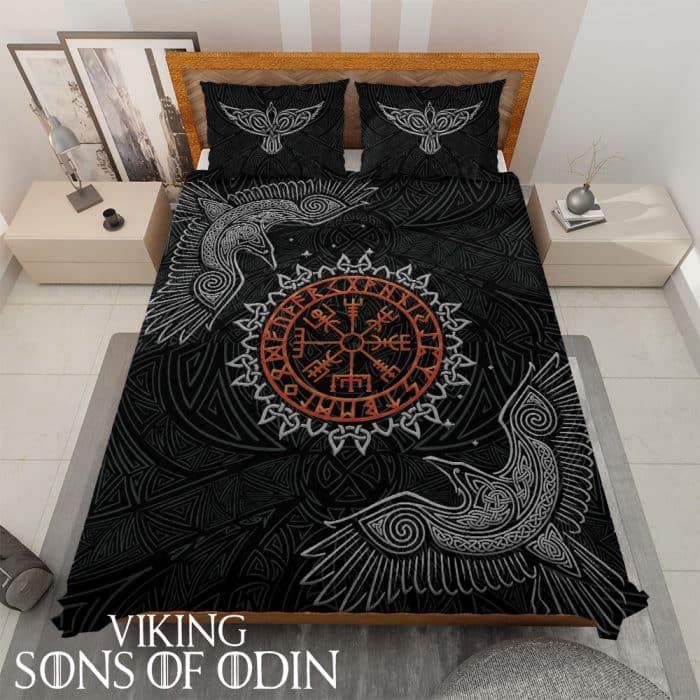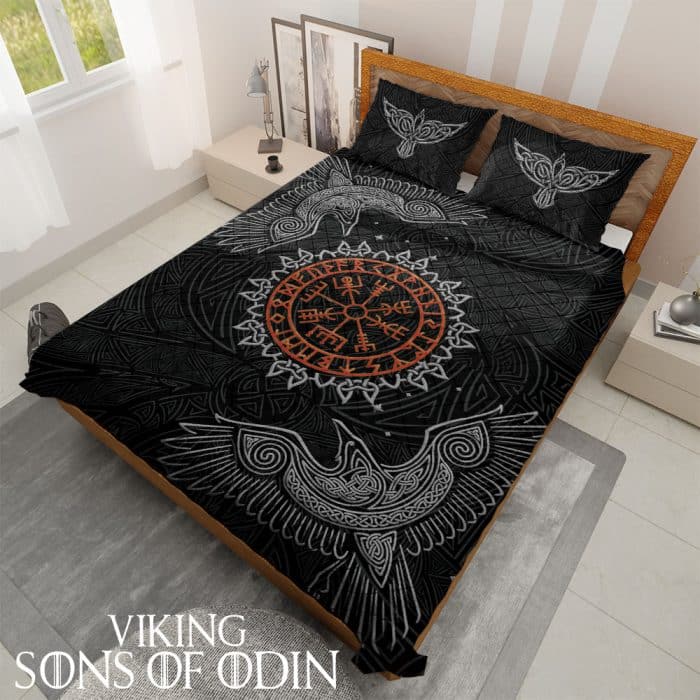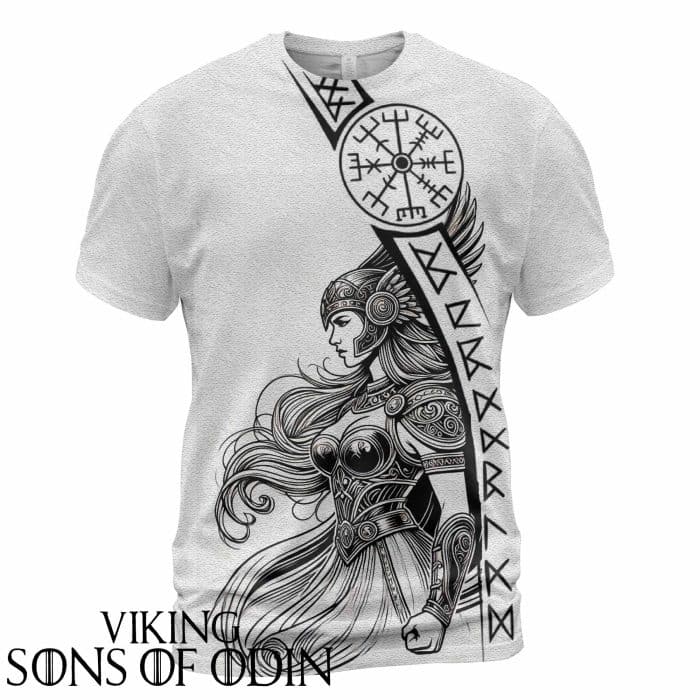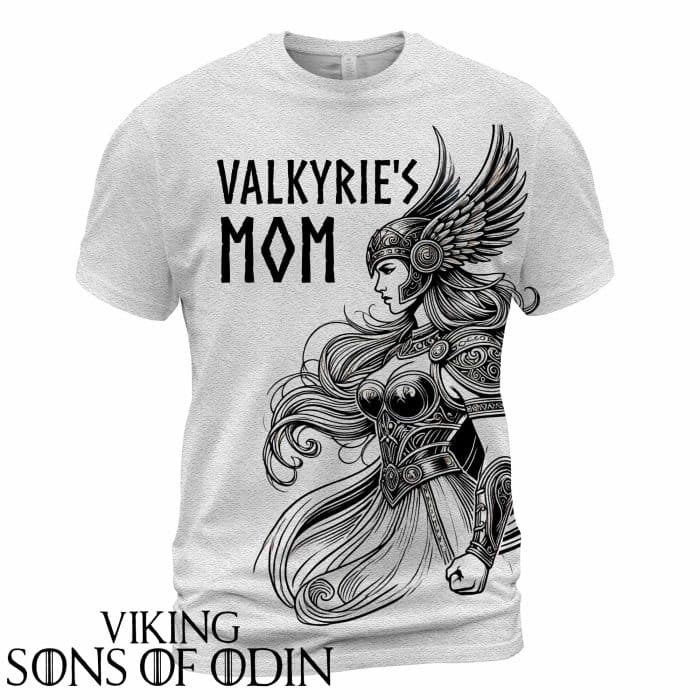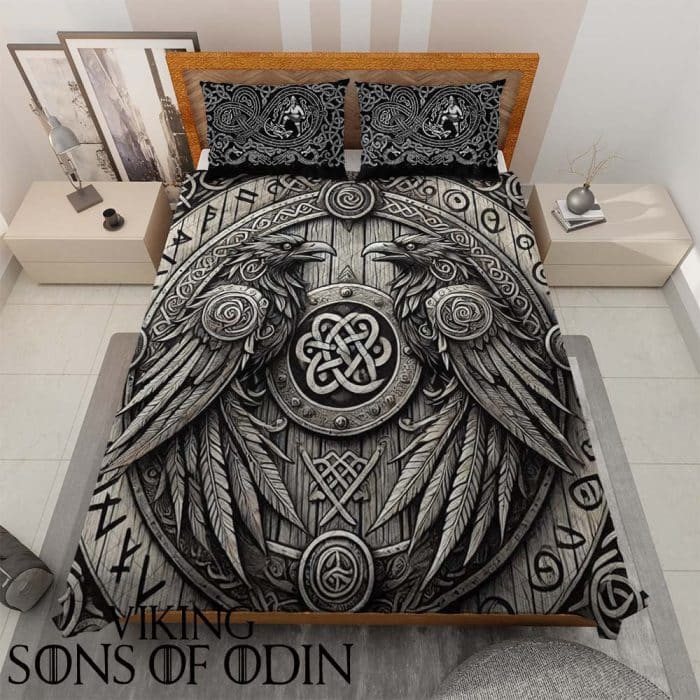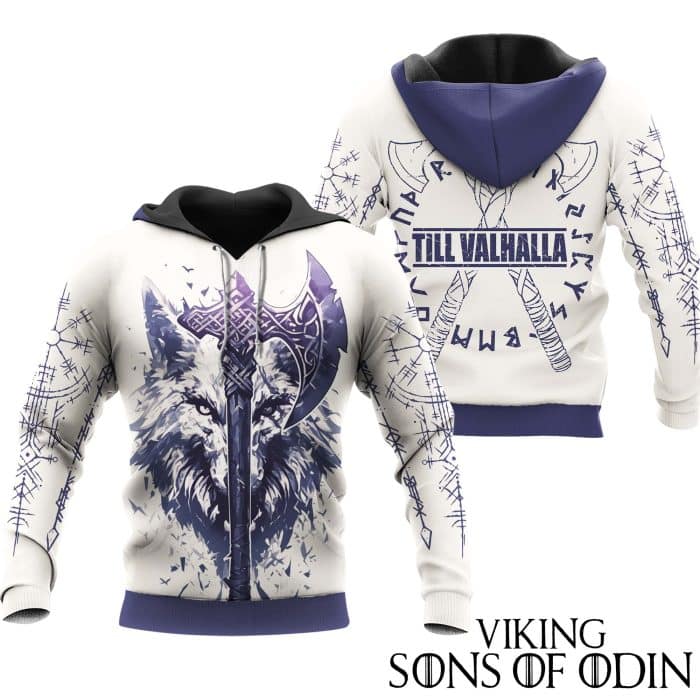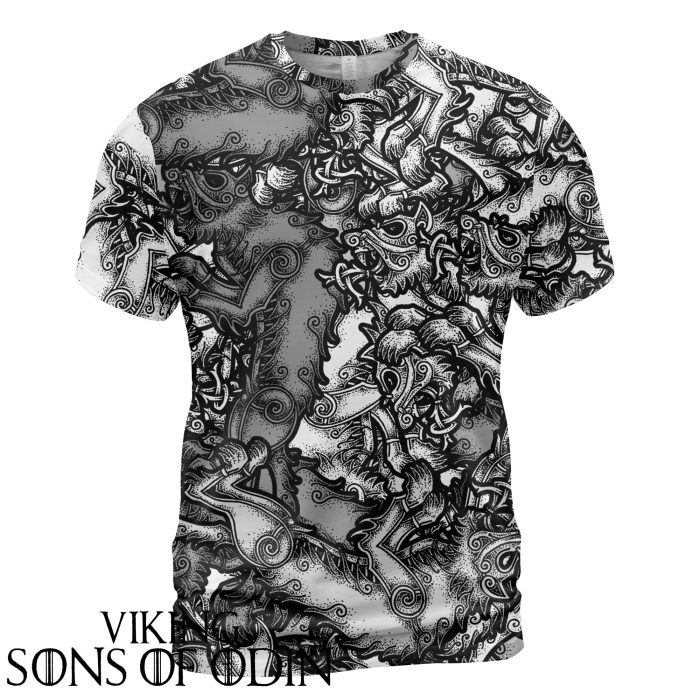Nordic Discovery, Viking
Huginn and Muninn
In Norse mythology, Huginn (the Norse word “thought”) and Muninn (“memory” of the Norse or “mind”) are a pair of crows that fly around the world, Midgard, and carry information to the god Odin. Huginn and Muninn are attested in the Poetic Edda, compiled in the 13th century from earlier traditional sources: Prose Edda and Heimskringla; in the Third Treatise on Grammar , compiled in the 13th century by Óláfr Þórðarson ; and in the poetry of the skalds. The names of the crows are sometimes modernly anglicized as Hugin and Munin.
In Poetic Edda, an Odin in disguise expresses that he fears that they might not return from their daily flight. The Prose Edda explains that Odin is called the “raven-god” due to his association with Hugin and Munin. In the Prose Edda and Third Treatise on Grammar, two crows are depicted perched on Odin’s shoulders. Heimskringla details that Odin gave Huginn and Muninn the ability to speak.
Examples of artifacts that might depict Odin with one of the crows include the migratory stage golden bracteates, the Vendel era helmet plate, an identical pair of German Iron Age brooches bird-shaped figures, Viking Age categorical objects depicts a mustached man wearing a helmet, and part of the 10th or 11th century Thorwald’s Cross. Huginn and Muninn act as messengers of Odin that are related to shamanic practices, the Norse crow banner, the general crow symbolism among Germanic peoples, and the Norse concepts of fylgja and hamingja.
In Poetic Edda’s poem Grímnismál, the god Odin (disguised as Grímnir) provides the young Agnarr with information about Odin’s companions. He tells the prince about Odin’s two wolves Geri and Freki, and in the next stanza of the poem, says that Huginn and Muninn fly daily over the world, Midgard. Grímnir said he was worried Huginn might not return, but he was even more afraid for Muninn:
In Prose Edda’s book Gylfaginning (chapter 38), the enthroned character of High tells Gangleri (king Gylfi in disguise) that two ravens named Huginn and Muninn sit on Odin’s shoulders. The crows told Odin everything they saw and heard. Odin sent Huginn and Muninn out at dawn, and the birds flew around the world before returning at dinner time. As a result, Odin is notified of many events. High adds that it is from this association that Odin is considered “the crow god”. The aforementioned passage by Grímnismál is then quoted.

